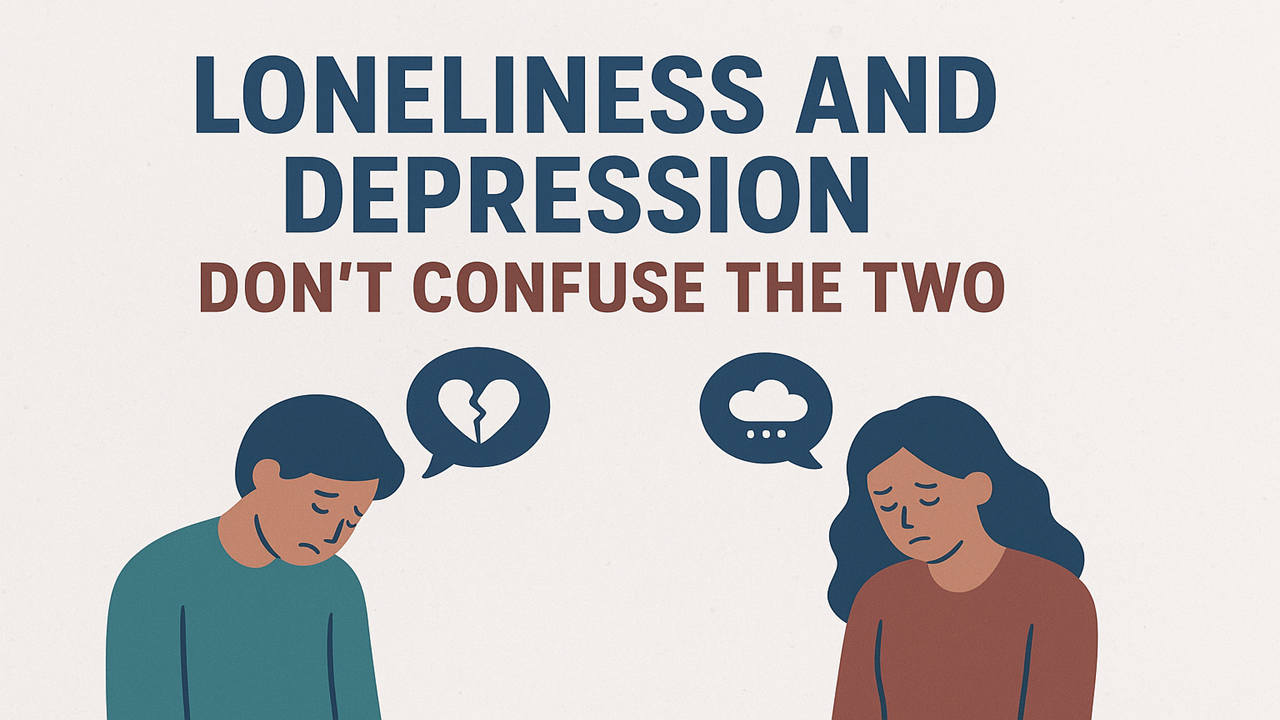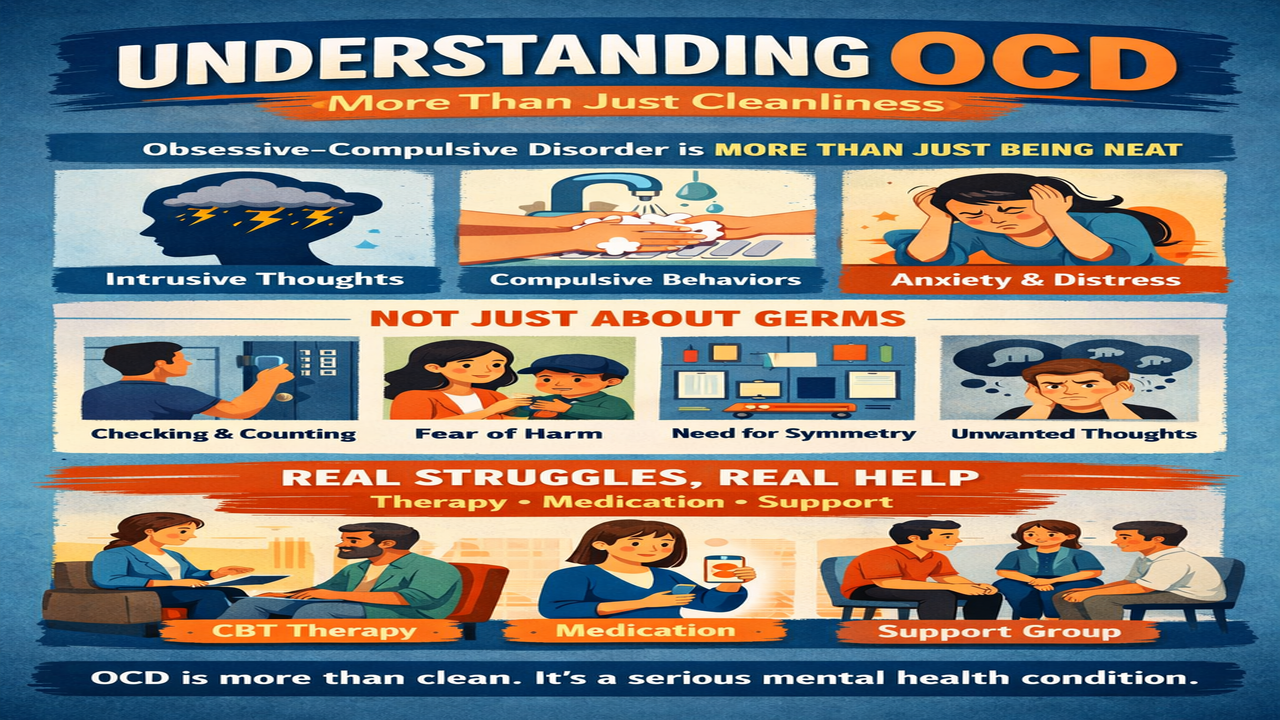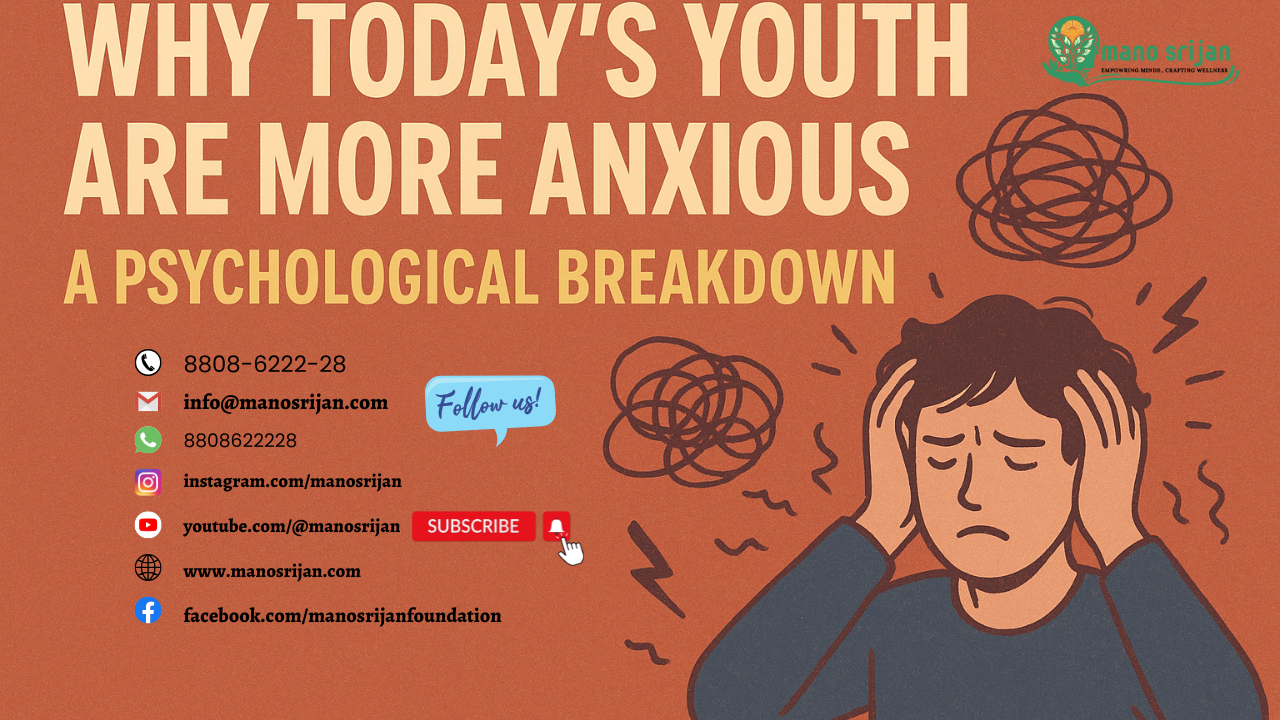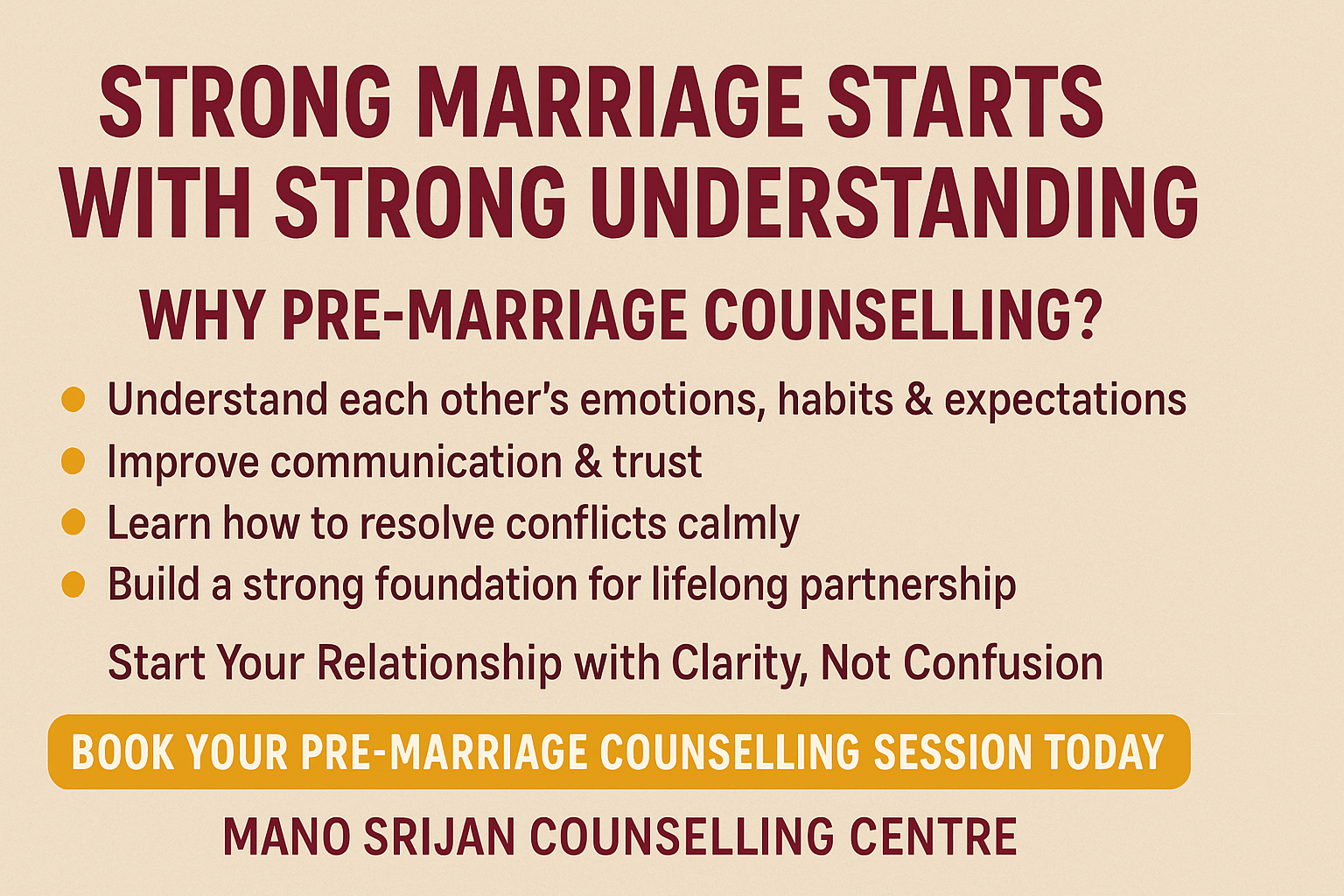
- 01 Sep 2025
- Psy. Ashish Pandey
Loneliness and Depression: Don’t Confuse the Two
In India and across the world, conversations around mental health are
finally gaining attention. With increasing awareness, more people are openly
discussing their emotional struggles and seeking help. But one common confusion
still persists: is loneliness the same as depression? While they
often overlap, they are not the same experience. Understanding the
difference is crucial, because mistaking one for the other can delay the right
kind of support and treatment.
This article explores the nuances between loneliness and depression,
their signs, how they differ, and what steps can be taken to cope with each.
At Mano Srijan Counselling Centre, Kanpur, we often meet people who
ask: “Am I lonely, or am I depressed?” The two may look similar on
the surface, but they are not the same. Confusing one for the other can
delay the right kind of support.
🌱 What Is Loneliness?
Loneliness is an emotional state that arises when a person
feels a lack of meaningful social connection. It doesn’t necessarily depend on
being physically alone. Someone may be surrounded by family and friends but
still feel lonely if their relationships don’t feel emotionally fulfilling.
Common Features of Loneliness:
- Feeling disconnected from others
- A sense of emptiness even when among people
- Craving deeper emotional or social connections
- A feeling that “nobody understands me”
Example: A young college student living in a bustling hostel may
feel lonely if they haven’t found close friends to confide in, even though they
are surrounded by peers all the time.
Why It Matters in India
In Indian society, community and family bonds are traditionally strong.
But with urbanization, migration for jobs, and increasing use of digital
devices, many young adults and even elderly people report feeling isolated. The
“generation gap” and stigma around sharing personal struggles often add to this
loneliness.
🌧️ What Is Depression?
Depression, clinically known as Major Depressive Disorder, is
a mental health condition that goes beyond sadness or loneliness. It
involves persistent low mood, lack of interest, and biological changes in
how the brain regulates emotions.
Common Features of Depression:
- Persistent sadness lasting more than two weeks
- Loss of interest in activities once enjoyed
- Fatigue or low energy
- Difficulty concentrating
- Feelings of guilt or worthlessness
- Changes in sleep or appetite
- In severe cases, thoughts of self-harm or suicide
Example: A 35-year-old working professional may feel uninterested
in going to work, stop enjoying hobbies like cricket or movies, and experience
constant fatigue. This is not just loneliness—it’s a clinical condition needing
treatment.
Why It Matters in India
According to the World Health Organization, India has one of the highest
rates of depression in the world. Yet stigma, lack of awareness, and limited
access to mental health professionals mean that millions of cases go
undiagnosed and untreated.
🔍 Key Differences Between Loneliness and Depression
Though they may appear similar, loneliness and depression are
distinct experiences. Here’s how they differ:
|
Aspect |
Loneliness |
Depression |
|
Nature |
Emotional state |
Mental health disorder |
|
Duration |
Can be temporary |
Lasts weeks to months or
longer |
|
Cause |
Lack of meaningful
connections |
Complex mix of genetics,
brain chemistry, trauma, stress |
|
Symptoms |
Feeling disconnected,
craving companionship |
Persistent sadness, loss
of interest, fatigue, suicidal thoughts |
|
Solution |
Building connections,
social support |
Professional treatment
(therapy, medication) + support |
🧠 How Loneliness Can Lead to Depression
While different, loneliness and depression are often linked. Long-term
loneliness can become a risk factor for depression. Here’s how:
Chronic loneliness increases stress hormones, affecting brain health.
It reduces opportunities for positive social reinforcement. Over time, feelings of isolation can lead to hopelessness—a core feature of depression.
In India, many elderly people experience loneliness after retirement or
loss of a spouse. Without emotional support, they may gradually develop
depressive symptoms.
⚠️ Myths and Misconceptions
Myth 1: "If you feel lonely, you must be depressed."
Reality: Not always. Loneliness can be temporary and resolved by
building social bonds. Depression is a medical condition that may need clinical
treatment.
Myth 2: "Strong family ties in India prevent loneliness."
Reality: Even within joint families, individuals may feel
emotionally disconnected. Generational gaps and lack of open communication
often create silent loneliness.
Myth 3: "Depression is just sadness; you can snap out of it."
Reality: Depression is not a choice. It involves brain chemistry,
and professional treatment is often required.
💡 Coping Strategies for Loneliness
If you are struggling with loneliness, here are some practical steps:
- Reconnect with old friends or relatives – Even a short call can
rekindle bonds.
- Join community groups or hobby classes – India has growing
interest-based communities, from yoga groups to book clubs.
- Limit excessive social media – Constant scrolling can worsen
feelings of comparison and isolation.
- Volunteer for social causes – Helping others builds purpose and new
connections.
- Express yourself – Writing, painting, or music can provide
emotional release.
🛠️ Coping Strategies for Depression
If you suspect you’re dealing with depression rather than loneliness,
the approach must be different:
- Seek professional help – Psychologists and psychiatrists can
provide therapy and medication.
- Cognitive Behavioral Therapy (CBT) – Evidence-based therapy that
helps challenge negative thought patterns.
- Lifestyle changes – Regular exercise, balanced diet, and sleep
hygiene support recovery.
- Support groups – Many cities in India now have depression support
circles.
🧘 The Indian Context: Why Differentiating Matters
In India, mental health conversations are still overshadowed by stigma.
Many families dismiss signs of depression as "just stress" or
"loneliness," preventing timely intervention. Recognizing that loneliness
is situational, while depression is clinical, helps families and communities
provide the right kind of support.
For Students: Competitive exams often cause stress and isolation.
Knowing whether it’s loneliness or depression can guide whether to focus on
social bonding or professional therapy.
For Working Adults: Migration to metro cities often triggers
loneliness. Identifying the difference prevents self-diagnosis errors.
For Elders: Widowed or retired individuals may feel lonely but may
also develop clinical depression. Early screening is essential.
🌍 Case Study Example
Case: Meera, 24, moved from Lucknow to Bangalore for a corporate
job. She initially felt lonely because she missed her family and friends. Over
time, she made new friends, joined a dance class, and her loneliness eased.
However, her colleague Arjun, also 24, experienced something different.
He stopped enjoying cricket, his favorite sport, and withdrew from both old and
new friends. His sleep and appetite changed drastically. On seeking help, Arjun
was diagnosed with depression and began therapy.
Lesson: Both felt isolated, but their paths diverged. Meera’s
loneliness was temporary. Arjun needed clinical care.
Final Thoughts
While loneliness and depression may appear similar, they
require different approaches. Loneliness calls for social connection,
while depression demands professional intervention. Confusing the two can
delay help, especially in a country like India where stigma and
misunderstanding remain barriers.
By spreading awareness, encouraging open conversations, and making
mental health support more accessible, we can ensure that those who are lonely
find companionship, and those who are depressed find healing.
Remember: Reaching out for help is not a weakness—it’s the first step to
recovery.
If you or someone you love is struggling, remember: help is
available. At Mano Srijan Counselling Centre, we provide a safe,
confidential space to heal.
📞 Contact us today to book an
appointment and take the first step toward mental well-being.






